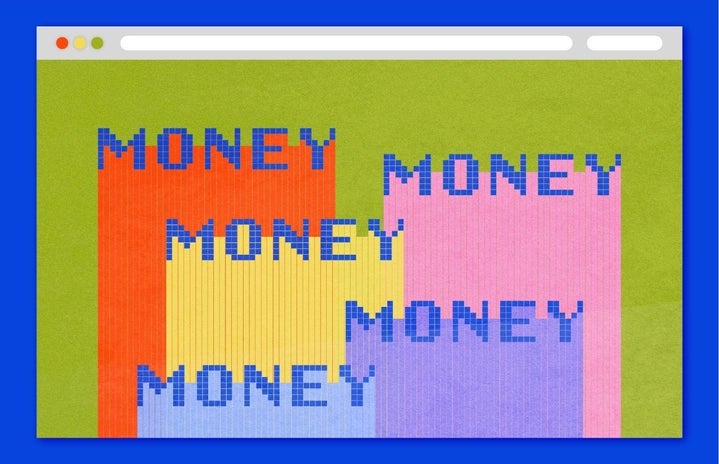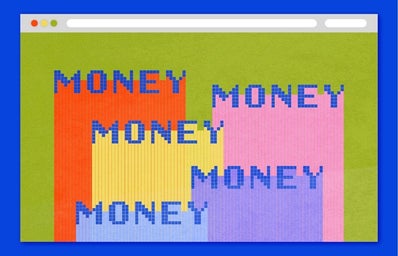One day during lockdown, I was lying in bed contemplating my life choices. It had been raining for hours, thick grey clouds throwing a gloomy blanket over my little hometown. I was thinking about becoming a writer and how that would support me financially. In a panic, I opened an Excel sheet and wrote down my budget which included my expenses so far and my saving goals. I promised myself that I would cut down on unnecessary expenses, start saving and educate myself on how to get my finances in order. Ever since then, I have learnt so much about budgeting and I thought I could use the money I’ve saved to go on a week vacation when this pandemic is over.
Only it wasn’t like this.
Like many students, I had a lot of spare time during the spring and summer of 2020. I binged on Netflix, played around 70 hours of Sims 4 (yes, there is a time tracker) but also learned new things like how to solve a Rubik’s cube and how to paint my nails. Once the lockdown was eased and the days got longer and warmer, I began spending more time outdoors. It wasn’t long until the everyday shrinking of my bank account became a concern. Even though I was lucky enough to be working part-time during lockdown and had saved some money, I was spending more money than before. A coffee here, an ASOS order there, everywhere I went I seemed to need money. Maybe I was compensating for when I couldn’t spend money, maybe it was some capitalist itch I was trying to satisfy, maybe it was me trying to create a sense of normality during a pandemic. I don’t know. I do know though that more money was going out of my bank account than in, and that something had to be done or I would be broke by the end of the summer.
Spoiler alert! I ended up being broke by the end of summer anyway. BUT the difference was that I knew how broke I was and why. Before, I happily buried my head in the sand, so I didn’t have to deal with my finances. Out of sight, out of mind. When I decided I was done being broke, I started to track every expense. I downloaded an app called MoneyManager and documented everything, even if it was one pound for a bus ticket. Doing this took some discipline, but it was worth it. I’m one of those people who get convinced that someone has robbed me when I look at my bank account. I would think to myself that I barely spent anything this month! However, small purchases can add up to big amounts before you know it, especially since it’s so easy to pay contactless and not think about it twice. By tracking my budget, I finally saw where my money was going and was able to reevaluate my spending behaviour. For example, I spend approximately 60 pounds on coffee per month. Is that a necessary expense? I have a coffee machine at home that makes perfectly decent coffee. I need coffee to be productive but did I need it from a barista? No. Making coffee at home saves me a good sum of money. By tracking my budget, I have learnt how to say ‘no’ to myself by understanding my habits better.
Against popular belief, learning how to budget can be about saying ‘yes’ as much as it can be about saying ‘no.’ When I cut down on expenses, I began looking at the expenses I did allow myself to make and wondered if they aligned with my personal values. This is called value-based spending which means only spending money on things you really want. Personally, I stopped buying fast fashion and focused on buying from small, sustainable brands. As small brands typically have higher price points, I had to think twice (or more) before I made a purchase. Do I really want this? Will I wear this for a long time? Will this bring me joy? Asking myself these questions changed my mindset completely. Regarding my wardrobe, I spent more money on individual garments but I also bought significantly less. Last month, I only bought two shirts. That’s a big step for someone who used to order in bulk from ASOS regularly and frankly, these two shirts have brought me more joy than any amount of clothes. I can’t say I have spent less since adopting this philosophy, but I’ve felt a lot more confident about where my money goes.
As cliché as it sounds, life is a mess. I wish it was as easy as waking up one day and magically getting your stuff together. But it just isn’t. Not for me at least. At the beginning of this pandemic, I was a broke student who didn’t think about personal finances at all, other than the occasional glance at my bank account. It wasn’t until one fateful day that I decided to get my finances together. It is a gradual and long process that I am still trying to figure out. It was over this summer that I learnt that I should know where my expenses are going and that it is okay to spend money on things that bring me joy. The biggest lesson I’ve learnt this year was by not dealing with something, it can mean you’ve lost control over a situation. Pulling your sleeves up and dealing with a problem requires you to admit that there is a problem in the first place and that’s not always easy. Nowadays, I still go over budget but I know where. I still splurge on things, but I know why. I still struggle to keep my finances in check, but I am learning.



